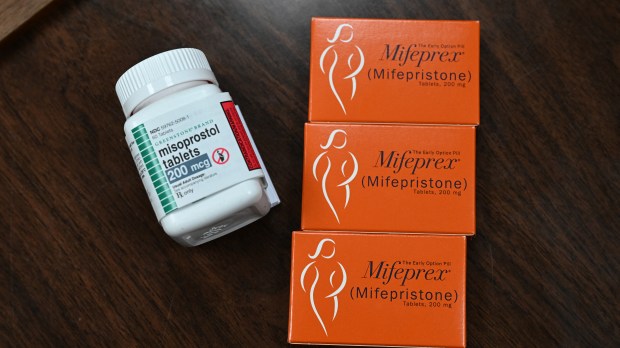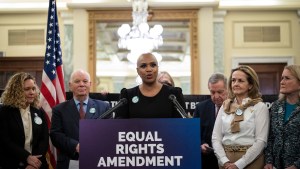The Walgreens pharmacy chain will not carry abortion pills in its stores in 20 states. The decision is in response to the threat of lawsuits from attorneys general in those states.
Walgreens and other pharmacy retailers have said that they are applying for certification to dispense the abortion drug mifepristone under new regulations issued by the Food and Drug Administration in January.
Media reporting on the continuing controversy say that abortion medication is the most common way women terminate pregnancies.
In a February 17 letter to Kansas’ attorney general, Walgreens affirmed that it “does not intend to dispense Mifepristone within your state.”
“At this time, we are working through the certification process” and not yet distributing the drug anywhere, the letter said.
In a statement to National Public Radio, Walgreens said it sent similar letters to all 20 attorneys general who had sent a February 1 letter concerning the sale of abortion medication in pharmacies.
The radio network said that mifepristone is still allowed in some of the states where Walgreens won’t sell it, including Alaska, Iowa, and Montana. The other states are Alabama, Arkansas, Florida, Georgia, Indiana, Kentucky, Louisiana, Mississippi, Missouri, North Dakota, Ohio, Oklahoma, South Carolina, South Dakota, Texas, Utah, and West Virginia.
Far riskier
The attorneys general’s letter said that abortion pills are “far riskier than surgical abortions, according to established scientific consensus.” It quoted the University of California San Francisco’s Advancing New Standards on Reproductive Health journal: “Medication abortions were 5.96 times as likely to result in a complication as first-trimester aspiration abortions.”
The AGs also commented that mail-order abortion pills “invite the horror of an increase in coerced abortions. When abortion drugs are mailed or consumed outside a regulated medical facility, the risk of coercion is much higher — indeed, guaranteed — because there is no oversight. Outside the regulated medical context, a person can obtain an abortion pill quite easily and then coerce a woman into taking it.”
The attorneys general also sent letters to CVS, Costco, Walmart, Rite Aid, Albertsons and Kroger, but they did not respond to NPR’s request for information on whether they are considering action similar to Walgreens. A spokesperson for Rite Aid told CNN that the pharmacy chain is monitoring developments.
“Rite Aid is monitoring the latest federal, state, legal and regulatory developments regarding mifepristone dispensing and we will continue to evaluate the Company’s ability to dispense mifepristone in accordance with those developments,” the statement said.
The Secular Pro-Life organization welcomed the news, saying it is a “positive step forward,” but that “there is much work left to do.”
“Walgreens continues to threaten the lives of children in states that have been captured by the abortion industry,” Secular Pro-Life said, adding that it “continues to encourage boycotts of all businesses that stand to profit from the violence of abortion.”



